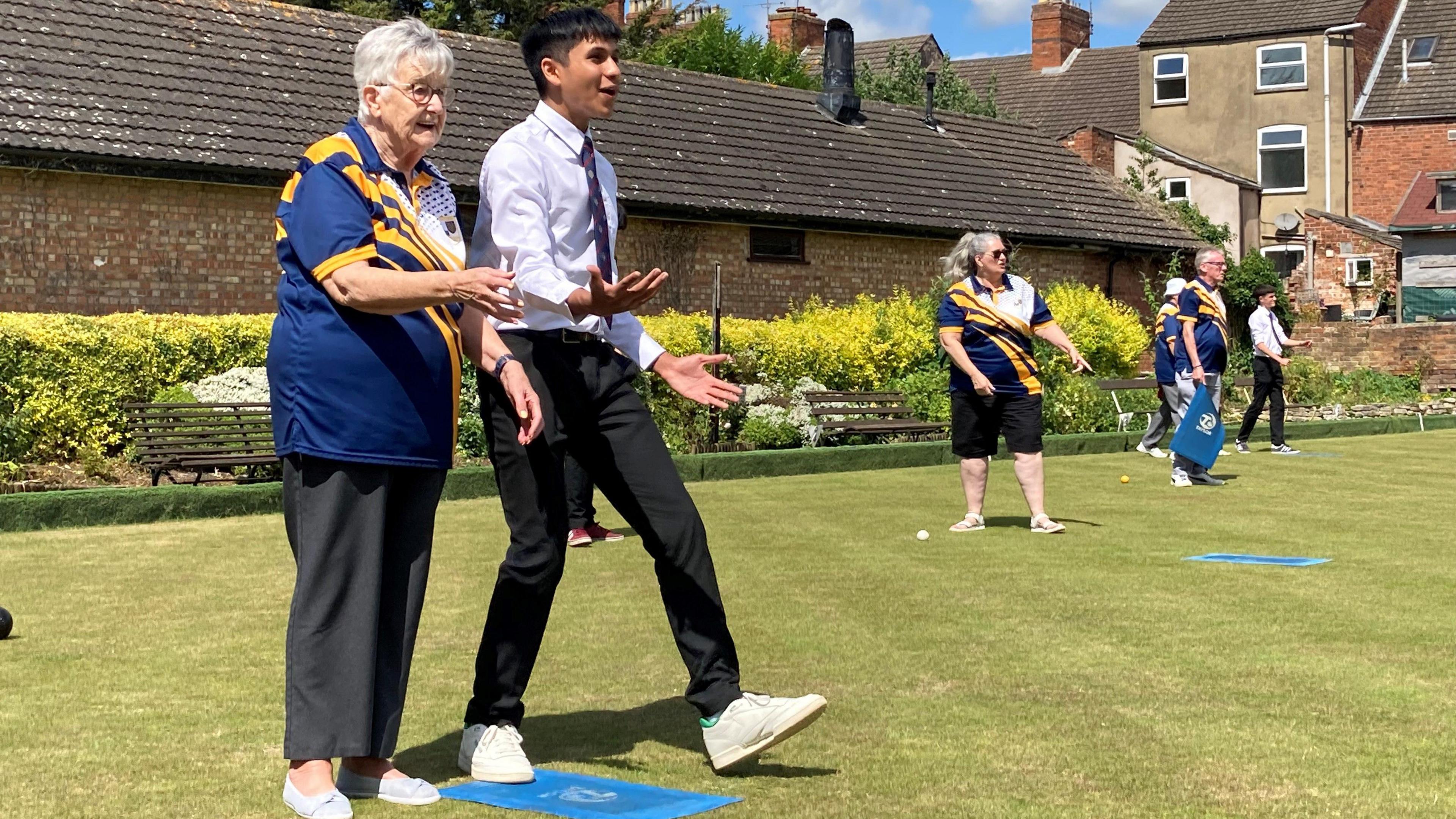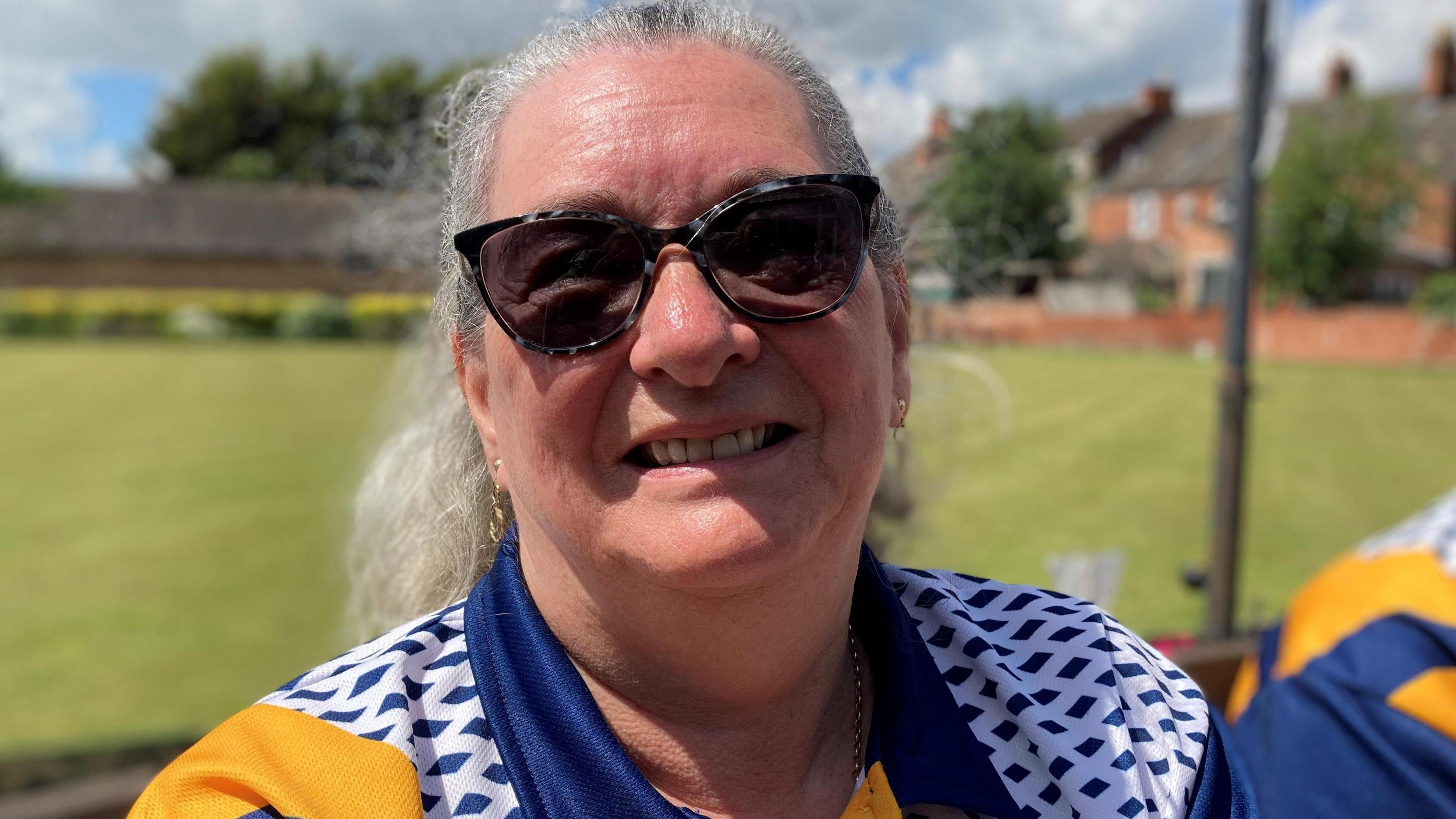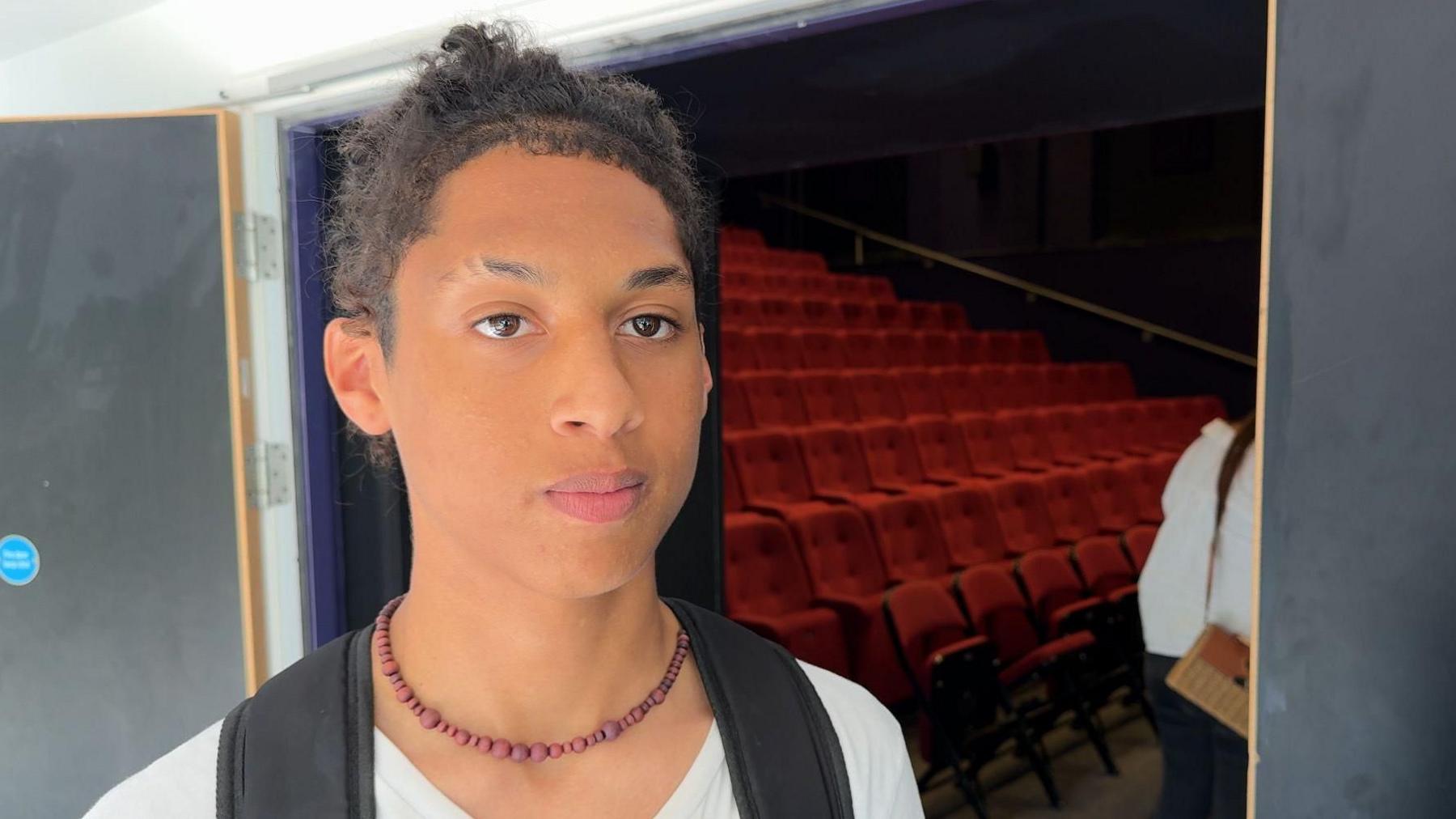Gen Z and baby boomers talk politics over bowls

Max, 17, learns the art of bowling
- Published
The sun is beating down upon an immaculately manicured lawn bordered by flowers and hedgerows.
On the green, members of Grantham Bowling Club are patiently teaching a group of sixth formers how to play.
Other club members pour the squash and set out the sandwiches while listening to the laughter and the gentle knock of ball on ball.
"You can't get a more perfect day for it," says club member, Kath Groom, 68.
It is the quintessential English summer scene that could be anywhere. In fact, it's the centre of Grantham with a supermarket petrol forecourt on one side of the boundary wall and a row of terraced houses on the other.
All the political, economic and social challenges found across the country exist on the other sides of those walls, and everyone is here to talk about them - after the game.

Grantham Bowling Club members teach sixth formers from The King's School
We invited club members to meet with sixth formers from The King's School, a grammar school for boys aged 11 to 18.
With an average age gap of 55 years between the two groups is there a generational gap on the political issues exercising them all?
Sitting overlooking the bowling green, it is soon obvious that both groups feel they have been dealt a few curve balls.
Seventy-seven-year-old club chairman, Paul McGoldrick, says: "The first thing that a lot of us are interested in is our pensions because government like to play with them. The other thing is the National Health Service because we're more likely to use it."
At 18, Tashan is preparing to vote in a general election for the first time.
"Some of the key issues that might affect me next year, like university fees and free movement in the EU, aren't being talked about by any of the major parties so I'm looking at other issues like the economy and defence, but I'm still weighing it all up."

First-time voter Tashan, 18, says he is undecided who to vote for
So what about an issue that often unites many voters across the generations - the environment?
Max, 17, says: "We can see with a lot of major parties the pushing back or scrapping of environmental policies for short-term economic growth but we're going to be the ones that deal with the fact that our planet may become slowly uninhabitable."
Up until now the club members have sat nodding, but Kath speaks up.
"I get quite frustrated that our generation get accused of being quite wasteful," she says.
"When I had children we had nappies which we used to wash whereas now they're disposable and they take a long time to break down. We had glass milk bottles and when you went to the shops you got stuff wrapped in paper not plastic."

Kath Groom, 68, says her generation is wrongly accused of being wasteful
They sip on their orange cordial and look thoughtful while thinking about which group has the rawest deal, the baby boomers or Gen Z.
Edward, 17, says it is "very different now when it comes to buying a house than our older generation".
Paul gently pushes back.
"When we were at school all my friends lived in council houses," he said.
When asked which of the young people want the UK to re-enter the EU, three of the seven raise their hands. Not one of the club members agree.
"I think a lot of people who voted leave looking back now would think differently," said Noah, 17.
"The EU made a lot of mistakes and I do believe that, as a British person, we do a good job on our own," responds Sue Layton, 72.
But there are also areas of agreement, including on the expressed wish to curb immigration, rejection of votes for 16-year-olds and national service.
All the teenagers vigorously shake their heads at the prospect. The others agree.

Members of Grantham Bowling Club met with sixth formers to plays bowls and talk politics
When asked where they get their news, especially political, the students say social media plays the biggest role.
That's not a surprise. Six in 10 young people are much more likely to consume their news on social media via their phones compared to one in four older adults, according to Ofcom research., external
People aged under 24 are also far less likely to vote. It is estimated just over 50% of those aged 18 to 24 voted in 2019 compared to 80% of those aged 65 and over, according to House of Commons Library, external.
"Perhaps there's a tendency for the parties to concentrate on the middle aged and older generations and rightly so because they tend to turn out much more," said Edward, adding: "It's a question of disillusionment within the younger generation."
"You're a lovely bunch of lads and I wish you all the luck in the world," says Kath.
"It's not going to be easy but let me tell you that the years go by so quickly," says Paul.
"Before you know it you'll be sat here our age, so enjoy every moment."
Related topics
Related stories
- Published28 June 2024

